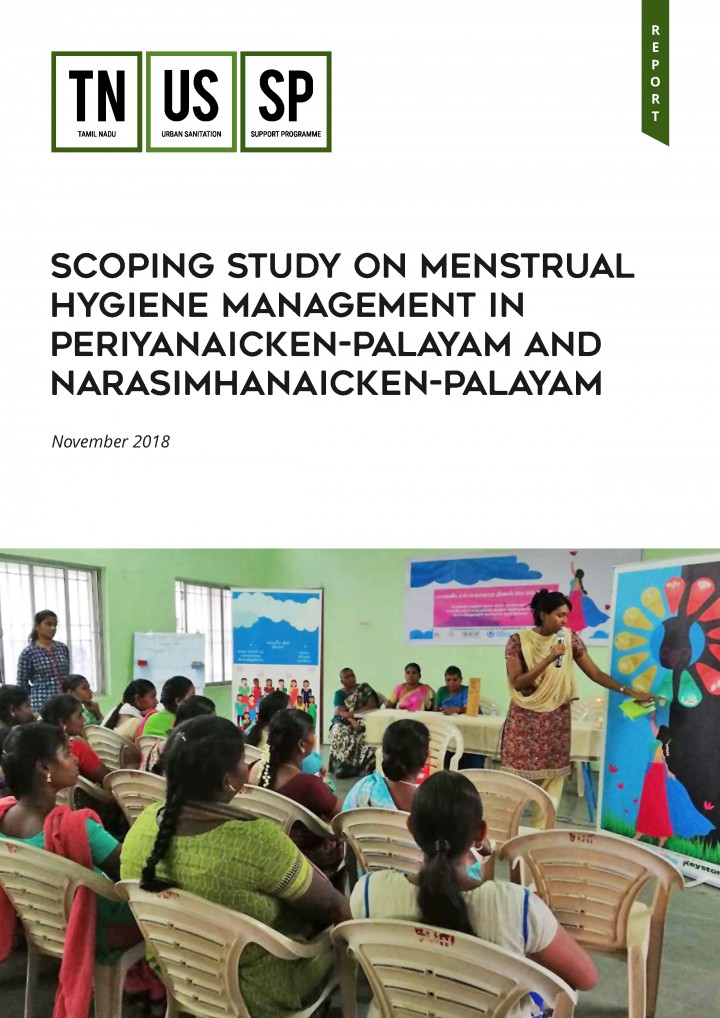Scoping Study on Menstrual Hygiene Management in Periyanaicken-Palayam and Narasimhanaicken-Palayam
TNUSSP (2018)

Published in: 2018
Pages: 62
Publisher:
Tamil Nadu Urban Sanitation Support Programme by Indian Institute for Human Settlements, Bengaluru, India
Author:
TNUSSP
Uploaded by:
Theodore Sam
Partner profile:
Indian Institute for Human Settlements
1706 Views
3 Downloads
Improper disposal of menstrual waste is a noteworthy challenge when it comes to Menstrual Hygiene Management (MHM). Polymeric sanitary napkins, which have largely replaced cloth napkins, are made of material that is non-biodegradable, leading to the accumulation of used napkins in landfills. Accumulated menstrual waste can be hazardous because menstrual blood on napkins stagnates for a long time allowing pathogens such as Escherichia coli (E-coli) to grow, thereby causing adverse health impacts. TNUSSP conducted a scoping study in four slums in PNP and NNP in Coimbatore district. The study was aimed at understanding and addressing the issue of MHM among adolescent girls and women residing in slums or slum-like informal settlements.
Bibliographic information
TNUSSP (2018). Scoping Study on Menstrual Hygiene Management in Periyanaicken-Palayam and Narasimhanaicken-Palayam. Tamil Nadu Urban Sanitation Support Programme by Indian Institute for Human Settlements, Bengaluru, India
Filter tags
East Asia & Pacific Educators English Menstrual Health and Hygiene (MHH) Practitioners














